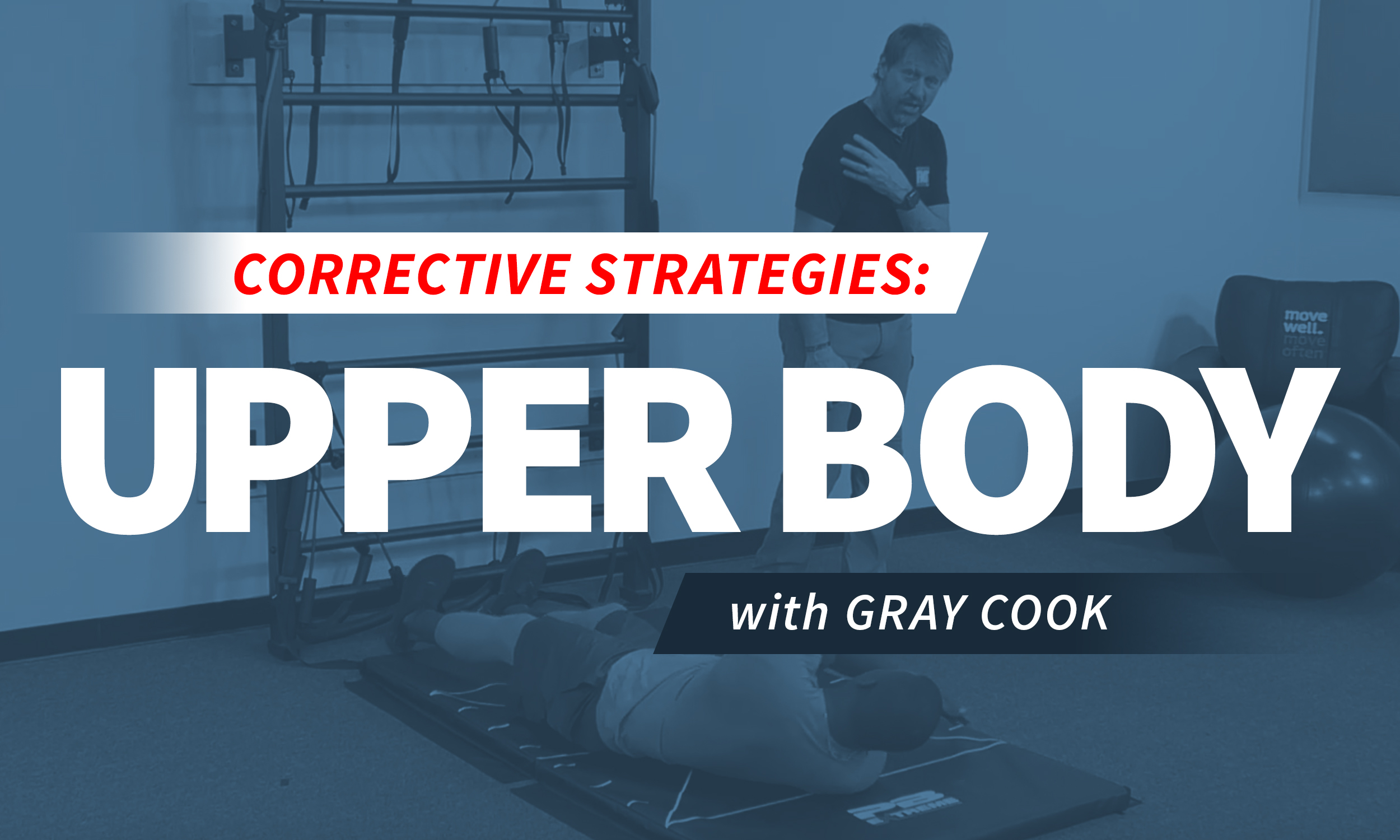
Description
Strong shoulders start with smart movement.
Correcting shoulder mobility is about far more than stretching—it’s a complex pattern where the wrong exercise choices can lead to significant problems. Shoulder dysfunction often links to issues in the neck, posture, and left/right imbalances, especially in throwing and rotational athletes. The SFMA, FMS, and Symmio each use variations of the reaching pattern to evaluate mobility across the hand, wrist, elbow, and shoulder, with FMS and Symmio also testing both shoulders together due to their shared connection at the spine.
In this course, Gray Cook guides you through a progressive series of corrective exercises. Starting with rolling and moving through chops and lifts, deadlifts, windmills, and culminating in his six-position carry, each drill focuses on syncing the shoulders with posture and establishing the stability required before adding conditioning activities.
You’ll also gain insight into the importance of shoulder girdle stability, tissue mobility, and breath sequencing, while learning how spine posture variations can support and improve functional shoulder movement.
Leave with the Ability to:
- Recognize key factors in shoulder dysfunction — understand how posture, neck issues, and left/right imbalances affect mobility.
- Progress through targeted corrective exercises — implement rolling, chops and lifts, deadlifts, windmills, and the six-position carry to restore mobility and stability.
- Sync shoulder function with posture and breathing — integrate shoulder movement with core stability, tissue mobility, and breath sequence.
- Build stability before conditioning — ensure proper calibration of the shoulders and posture to support long-term functional performance.
Sneak Peek of This Course!
Get the Complete Corrective Strategies Series!
Access the full Corrective Strategies Series with our bundle option! This collection explores the FMS approach to identifying and correcting movement dysfunctions across key patterns, including Hip Hinge, Squat, Rotation, and Balance.
The FMS Corrective Strategies Series provides a clear test–correct–retest framework you can integrate seamlessly into your work. More than addressing isolated body parts, this series shows you how to identify and correct movement issues at the edge of ability—within patterns and in a rich sensory environment.
